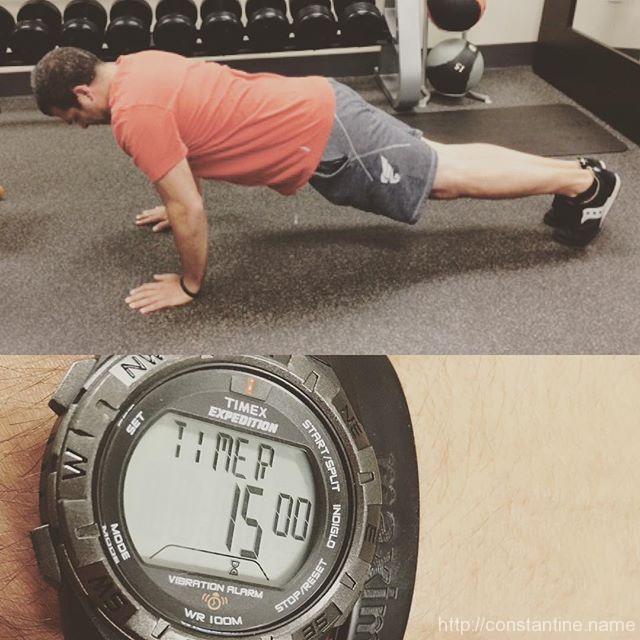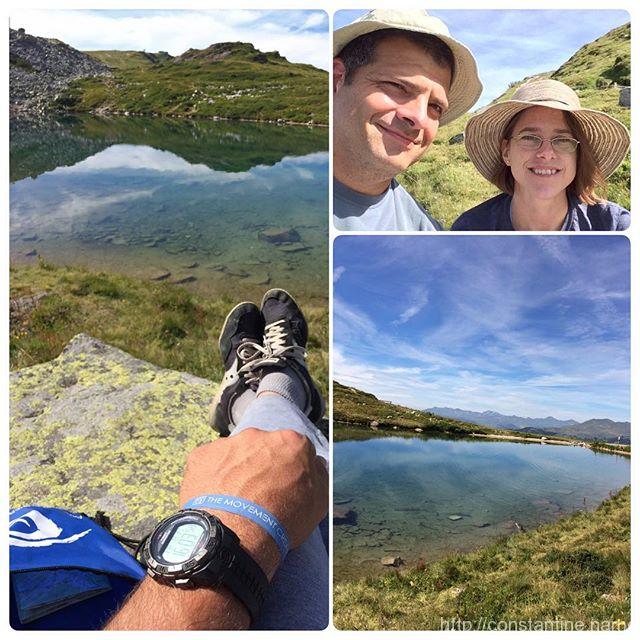This is the game we play: The only thing you really know is what you can put into words.
~ Alan Watts
slip:4a1461.
This is the game we play: The only thing you really know is what you can put into words.
~ Alan Watts
slip:4a1461.
You are under no obligation to remain the same person you were a year ago, a month ago, or even a day ago. You are here to create yourself, continuously.
~ Richard Feynman
slip:4a1244.
The lesson? To respond to the unexpected and hurtful behavior of others with something more than a wipe of the glasses, to see it as a chance to expand our understanding, even if, as Proust warns us, “when we discover the true lives of other people, the real world beneath the world of appearances, we get as many surprises as on visiting a house of plain exterior which inside is full of hidden treasure, torture-chambers or skeletons.”
~ Alain de Botton
slip:4a982.
In the past couple weeks I’ve been thinking a lot about whether or not to keep my slipbox physical or if I should switch to a digital system. There are specific reasons for having it be physical:
I knew all that when I started. That’s why I created a physical slipbox. But lately, the following things have become a problem, and led me to reconsider going fully digital:
It’s that last item which is really a big deal for me. To solve those three issues I was considering changing the entire slipbox to be digital (and giving up all the other positives of a physical slipbox.)
Fortunately, I kept thinking, reading and experimenting and I figured out I can have both worlds.
I eventually realized that I already have really large “slips” in the slipbox. I already have a collection of digital books, essays, and articles that are in PDF format. For those digital files, their corresponding physical slip has a doodle (it looks like a piece of paper with one corner turned down) that reminds me there’s also a digital file. All of those files are currently “on” slips below the “2” address in the slipbox. (e.g.: The “2tu3” slip has a digital file doodle, and there’s a “2tu3 – Whatever the Title Is.pdf” file.)
For my item 2 above (big digital files of research on people) I just do the same thing for those people. “Jane Doe” would already be on slip “4c1do” (which is a listing of “Doe”, “Donatta”, “Droge”, etc.) I can simply toss in a slip “4c2do1” with a digital-file mark (and name the digital file “4c2do1 – Jane Doe”.) The next person on “4c2do” who needs a digital file gets to be “4c1do2”, and so on.
For item 1 in my list, there’s no reason I can’t have a bunch of files where I keep little “remember this” notes. So I added physical slip “4c3”, and then every slip that might ever go under that address is a digital file. For example, my grammar web site is on “4c3wi1a”. But I never have to know or remember that. I just search for “grammar” and I land on that digital file.
It was item 3 from my list that had me stumped until I remembered Obsidian!
I simply have a folder full of folders and text files in the same organizational structure as my physical slipbox. Where I once had a bunch of digital books, essays, and articles tossed in one folder; those are now all stored under “2”. And there’s a now a “4” folder, with a “4c1” for people’s digital files, and a “4c3” for those “remember this” items. Back over in the physical slipbox, any slip that has a digital-file mark, I’ll find the digital file in the parallel universe of this tree of folders.
Finally, I pointed Obsidian at the outermost folder. Voila! For anything in this tree of folders, in the Obsidian app I can click “copy Obsidian URL…” and I get a URL like this one which I paste anywhere I want:
obsidian://open?vault=Craig's%20Slipbox&file=2%2F2i%2F2io1%20-%20Inconsistent%20yet%20persistentI have the Obsidian app installed on all my devices. Any time I try to navigate to an obsidian:// method URL, it open the app, and Obsidian opens that file.
Physical? Digital? I can’t choose… How about: Mostly physical, but digital when it needs to be? Nice.
ɕ
What is the role of podcasting in creating possibilities for connection, transformation, and personal growth?
A single email or podcast episode can spark life-changing connections and opportunities.
You don’t know what’s going to happen. You don’t know if there’s going to be a chance to talk to somebody. […] There is a big emphasis on possibility right? You are trying to reach out to somebody to have a conversation, and that space between an idea, to then having an incredible conversation, is full of possibility, full of uncertainty, full of potential.
~ David Nebinski (1:29)
This conversation examines the intersection of podcasting, creativity, and possibility. It begins with the idea that podcasting is more than conversations—it’s an exploration of potential. David reflects on how podcasts can create unique connections, foster trust, and spark transformative experiences. Possibility, in this context, is framed as the unpredictable and magical space between starting an idea and creating something meaningful.
The discussion also touches on practical and creative aspects of podcasting. Topics include strategies for sustaining creativity, managing constraints, and experimenting with formats such as roundtables, curated episodes, and thematic compilations. David emphasizes the importance of consistency, passion, and community support while highlighting how the medium inspires personal growth and strengthens connections with others.
Takeaways
The power of possibility — Podcasting provides a space for unexpected and transformative opportunities.
Connection and trust — Conversations in podcasting foster unique bonds that differ from ordinary interactions.
Creative experimentation — Exploring different formats keeps podcasting fresh and engaging.
Consistency and passion — Maintaining a regular schedule fuels the creative process and supports long-term growth.
Community and collaboration — Communities play a vital role in celebrating, supporting, and inspiring podcasters.
Sparking opportunities — A single email or introduction can open doors to significant relationships and collaborations.
The thrill of outreach — Reaching out to potential guests and reconnecting with old contacts energizes the podcasting process.
Resources
Portfolio Career Podcast — David’s podcast helping people build and grow their portfolio careers.
(Written with help from Chat-GPT.)
ɕ
When one of the company said to him, “convince me that logic is useful,” he said, … Would you like me to demonstrate it to you? Then I must make use of a demonstrative argument? And how will you know, then, whether I am deceiving you with a sophism? And when the man remained silent, he said, … You see how you yourself admit that logic is necessary, since without it you cannot even determine whether it is necessary or not.
~ Epictetus
slip:4a313.
It begins to look, more and more disturbingly, as if the gift of language is the single human trait that marks us all genetically, setting us apart from all the rest of life. Language is, like nest building or hive making, the universal and biologically specific activity of human beings. We engage in it communally, compulsively, and automatically. We cannot be human without it; if we were to be separated from it our minds would die, as surely as bees lost from the hive.
~ Lewis Thomas from, Lewis Thomas on our Social Nature and “Getting the Air Right”
slip:4ufole1.
Lorem ipsum dolor sit amet, consectetur adipiscing elit, sed do eiusmod tempor incididunt ut labore et dolore magna aliqua. Ut enim ad minim veniam, quis nostrud exercitation ullamco laboris nisi ut aliquip ex ea commodo consequat. Duis aute irure dolor in reprehenderit in voluptate velit esse cillum dolore eu fugiat nulla pariatur. Excepteur sint occaecat cupidatat non proident, sunt in culpa qui officia deserunt mollit anim id est laborum.
I’m going to guess you just spent some time trying to work out what I mean to convey through this assembly of: my title, that pull-quote, who might Thomas be, and that bit of vaguely familiar Latin. Interesting.
ɕ
As a follow up to yesterday: I do quite often laugh out loud at XKCD though. This one was was three layers of humirony.
My first instinct was to think: Actually, if we just built a lot more infrastructure to the left of those large supports on the left, we might be able to take a lot of the load off that little project… actually, the horizontal level seems to be lower on the right already, so left-loading might even lift the…
Second: omgbecky I swear I’m constantly ranting and raving about this sort of thing; how there are these terribly detailed and entangled things under the hood that only a handful of people understand and one good meteor could wipe out all our infrastructure…
Third: I was literally just installing ImageMagick a couple hours before I read this cartoon.
ɕ
For me, what defines a human being is the combination of our intellect, our self-awareness, and our mortality. Developing the first two, and in particular becoming comfortable with the third takes a lot of time. It’s clear to me that there are seasons to our human lives. The best description I’ve heard is that of four seasons: roots, fire, water and air, corresponding to beginning, actively carving one’s path, learning acceptance and understanding, and finally wisdom. (This is obviously a variation of the four, classical elements.)
Frequently over the past year I’ve found myself thinking about the transition from the season of water to the season of air. What would the season of air feel like if I experienced glimpses of it from the season of water?
I believe I have an answer: Understanding self-love.
To come to grips with one’s own mortality requires a deep apprehension of the temporary state of our existence, and I now believe understanding self-love is the doorway to the age of air.
ɕ
( In late 2016 I began a small discussion with a few friends about an idea. Eventually the project became a web site [now gone] and this series contains the posts from that site. The project continues in the Parkour Forum. )
Originally published Feb 3, 2017
The word manifesto traces its roots to the Latin manifestum, which means clear or conspicuous. A manifesto is defined as a declaration of one’s beliefs, opinions, motives, and intentions. It is simply a document that an organization or person writes that declares what is important to them.
A manifesto functions as both a statement of principles and a bold, sometimes rebellious, call to action. By causing people to evaluate the gap between those principles and their current reality, the manifesto challenges assumptions, fosters commitment, and provokes change.
[The following is a direct quote of what I initially wrote. Some of it is already supplanted as I write this.]
I don’t recall who (if anyone) I discussed the following idea with, but it has again bubbled to the surface of my brain: Let’s create a Code of Conduct for parkour/ADD. I’m envisioning a very simple web site; Just a sort of billboard that says this is the Code of Conduct. Then we start grass-roots spreading the word and expecting that every group/team step up to support this CoC by mentioning/linking to the CoC.
At first I thought of making it more complicated by having individuals register (with a closed loop email signup), or having people contact us (uh, me I suppose) to add back-links when they link… but then I thought. Nah. All it needs is to be a bit of a community discussion to settle on the Code (many such codes already exist, shouldn’t be too different for parkour/ADD). Then we enlist a few people to translate it into a few languages, and we put it up.
Thoughts? I know it’s doable… but I’m wondering if it’s *useful*…
In late 2016 I began a small discussion with a few friends about this thought. The discussion went — roughly — in three directions, and I wanted to lay this out here to begin a history of the project:
Goal – Discussion of what are we trying to create with this project; What is the concrete, objective thing we are creating? How do we define success; Is it creation of some artifact (a “code” of ethics/conduct?), or is it to reach some level of “adoption” of it?
Code – The most difficult part of the project. Statements of ethics are inherently complex and there is an enormously wide range of scope available. Part of this project will involve sorting out the “height of the bar”; The more complex a social/moral concept embodied in a statement, the more discussion and dissent will be evoked. We will have to balance the desire for achieving wide-spread, grass-roots adoption of the “code” against how far onto the moral high-ground the code sits.
Technology – What technologies, formats and forums are we to use for this project. We’re beginning in a “secret” Facebook group, but I expect to quickly outgrow this forum. I expect we’ll ultimately have to produce a web site to house the finished product, and I hope that can also include a narrative (aka “blog”) capturing the discussions and process. The later point being another reason I want to move “out” of a Facebook group asap, so we can capture as much of the discussion, permanently outside of FB.
A Traceur’s Manifesto
I’ve veered to using the word “traceur” in the hopes that people who self-identify with Parkour/freerunning/ADD will “recognize” it and will identify with it at least partially, while not being an instant lightening rod of diviciveness. (Using the masculine form in English, because that’s how English works. In other languages, we’ll use the appropriate default gender, which is also masculine as far as I know. eg, French.)
My choice of “manIfesto” is intended to be stirring; This entire project is meant to make people *think*, not actually to achieve changing their minds/opinions. So I feel “manifesto” comes from the moral high road by shouting out a declaration and a call to action. (Obviously, it has to be written so as to actually achieve those goals.)
The use of “A …” implies this manifesto is not presuming to be “The …” one true version of things. Also, “A Traceur’s …” can be interpretted to mean “the traceur who wrote the manifesto”, as well as to mean “this manifesto is for those persons who are traceurs”.
I remain open to being talked out of my opinions. But, after months of thinking about this. I’m convinced this is the best name *I* can come up with. So I’m leaving it here to provide an opportunity for you to talk me out of it.
Presuming it stands, I will build “infrastructure” to actually begin the project; a domain name, web site, google group for discussion, etc.
I’m glad you asked. There is a dedicated forum in the Parkour Forum
https://parkourforum.world/viewforum.php?f=8
As things get discussed, concensus is reached or decisions are made, things will find there way here to this web site.
The goal of this Manifesto is to lay out values and ideals in the context of Parkour. I am writing in the hope that this will cause others to think deeply about their own values, ideals, and personal philosophies. If you do not consciously choose these things, you are surrendering yourself to the power of ideas you do not know you have accepted.
Do you have a mind? Do you use it? How do you use it? What does your mind realize? What are your values and ideals? Where did you obtain them? Are they correct? How does any of that apply to your personal understanding of Parkour?
These are deep questions, all in the realm of Philosophy. But this Manifesto is not meant to be a rigorous treatise of Philosophy. By thinking about these questions, each of us can expand our personal Parkour, and increase the good that Parkour can accomplish generally. I also believe that by examining questions commonly encountered in the context of Parkour, we can each enlighten our broader, personal philosophies, values and ideals.
Is there value in movement? Do I have the right to move? When might that right be limited? What responsibilities do I have for my actions? Am I responsible for the ideas and conceptions formed by others who perceive my actions? What responsibilities do I have to my community of fellow tracers, or to my community at large?
ɕ

Long day with plane, driving, dinner… No excuses. 15 minute pushup drill, resting only in seated squat. #100days #artdudeplacement http://constantine.name/100days
ɕ
We took a weekend trip to Anderson SC — dead-center on the eclipse totality track. This post is the photo gallery of all the subsequent posts in this series.
ɕ

Tracy has arrived! +1 to all selfies. Yes, hiking in the Alps with Saucony Bullets… only shoes I have! @themovementcreative @pkgamericas #swirlsonthemove
ɕ

The Great Hall at Hogwarts… err… I mean… Christs Church college.
ɕ

The Bell altar at Christs Church cathedral. “No nation, no church, no individual is guiltless. Without repentance and without forgiveness there can be no regeneration.” ~ George Bell
ɕ

Christs Church College entrance.
ɕ
Just in case you thought it was fairly new, it’s probably(*) older than you. Here’s a deep link, to a down-the-rabbit-hole discussion. Seems most sources attribute a 1968 conference, while the author of this message from the Software Craftsmanship group has dug up an ACM article from 1966.
* …and probably significantly older than you since the average age of the entire world population is definitely less than Software Engineering’s 47 years (and counting.)
ɕ